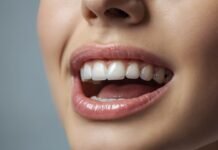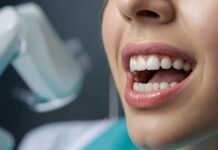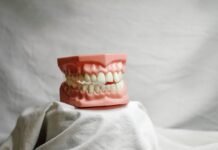When it comes to oral health, older adults’ needs and challenges differ from those of younger adults. For example, young adults have more natural teeth and can recover from cavities or other damage to their teeth more easily. Meanwhile, older adults are more likely to have oral diseases or conditions such as gum disease and tooth decay. These factors make the risks for older adults much greater than those for younger adults. In addition, many older adults don’t practice good oral hygiene habits on a daily basis at this stage in life. Many also have compromised immune systems from age-related illnesses like diabetes and cancer, which makes them prone to contracting oral infections like gingivitis. Improving the oral health of any seniors in your life should be a top priority because dental problems can contribute to an earlier death. Here are some tips on how you can help them improve their oral health.
Dentists and Dental Visits
According to Summerlin Dental Solutions, a dental office in Summerlin, “oral health is incredibly important, and seniors should seek out regular dental visits as soon as they are able.” Teeth problems can affect a person’s ability to eat properly, which can lead to nutritional issues. Some oral diseases can also cause pain, which makes it difficult for seniors to sleep at night, and it can lead to a drop in the quality of life for those in the later stages of life.
Dental visits are important for seniors, who are more likely to have oral health issues than younger adults. A dentist can help seniors identify oral diseases and conditions like tooth decay, gum disease, and cavities. The dentist can also recommend ways to prevent these issues from getting worse.
Floss and Regular Brushing
Seniors should make brushing twice daily and flossing once daily a priority. Brushing twice each day helps remove plaque and other debris from teeth and gums that can lead to cavities and gum disease. Brushing after meals is especially important since it is then that teeth are at their most vulnerable due to the presence of food.
One of the best and most effective ways to remove plaque is to floss daily. For some seniors, this may be a challenge due to the discomfort or difficulty bending over to floss at the end of a long day. If this sounds like a loved one, consider purchasing a flossing device.
These products create tension to help with the flossing process, reducing the need for bending and moving the hands too much. For seniors who have difficulty chewing and breaking food down, chewing with a toothbrush can help break up food and plaque, which can then be rinsed away at the end of the day.
Help Seniors Maintain Good Oral Health at Home
There are a few ways that you can help seniors maintain good oral health at home. Consider purchasing some soft-bristle toothbrushes and a water flosser to encourage regular brushing and flossing. Seniors who have difficulty moving their hands and arms can also benefit from purchasing a powered toothbrush. Some powered toothbrushes have buttons that seniors can use to start and stop the device, which can make brushing easier. Some seniors may also benefit from toothpaste designed for sensitive teeth, dry mouth, or teeth and gum sensitivity due to age-related issues. Helping seniors maintain good oral health at home can help fight cavities, gum disease, and tooth decay.
Consider Dental Implants When Some Original Teeth Are Gone
Dental implants are designed to replace teeth when some of the original teeth are gone. This procedure is often used when a senior loses a tooth due to gum disease or tooth decay. Dental implants are metal fixtures that are inserted into the jawbone, where they remain for a few weeks. After the implants fuse with the jawbone, they are ready to hold a tooth or bridge.
Some seniors prefer dental implants because they are permanent fixtures in the mouth. Transplanting teeth are also common, but these teeth can also be pulled out if they are causing damage to the jawbone. Seniors with dentures may also benefit from dental implants since they can help reduce jawbone loss in the areas where they are placed. This can help minimize the need to wear a denture on those lower teeth, which can be more challenging to clean.
The Importance of a Healthy Mouth Is Not Lost with Age
When it comes to oral health, seniors can benefit from many of the same practices as younger adults. It is especially important for seniors to visit their dentist regularly, especially if they are experiencing any signs of oral diseases or conditions. Other ways to help seniors maintain good oral health include good dietary choices and using dental products such as toothpaste and mouthwash. Seniors should practice these habits to ensure that their mouths are as healthy as possible. Maintaining oral health can help seniors feel better, stay active, and live longer.


























